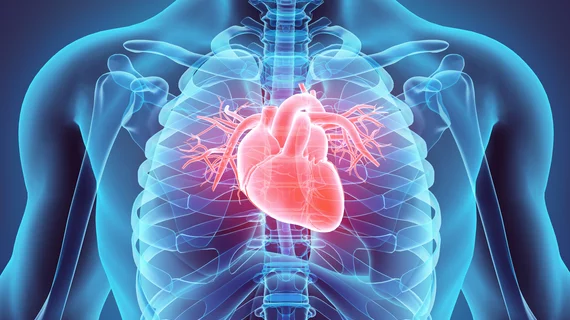Protein could help prevent Duchenne cardiomyopathy
A protein known to protect brain function in the setting of Duchenne muscular dystrophy may also have a positive impact on the heart, according to preliminary research presented at the American Heart Association’s Basic Cardiovascular Sciences scientific sessions on Aug. 1 in San Antonio.
Children with Duchenne muscular dystrophy typically begin to lose muscle strength and function between ages 3 and 5, according to the AHA’s press release announcing the research. Cardiomyopathy then follows this muscle deterioration, often leading to heart failure or death at a young age.
Lead author Cristi L. Galindo, PhD, MBA, with Vanderbilt University Medical Center, and colleagues studied a small group of Duchenne muscular dystrophy patients and found those with higher levels of brain-derived neurotrophic factor (BDNF) tended to have stronger hearts.
“Researchers have long known that BDNF is important for brain function. It helps brain cell survival and growth and promotes memory,” Galindo said in the release. “Our research shows BDNF also appears to be heart protective and heart specific. Data suggest the more there is, the better the heart function in the patient.”
Galindo et al. also tested whether it was possible to mimic the work of BDNF—and improve heart function along with it—in a mouse study. Because BDNF binds to a receptor called tropomyosin kinase B (TrKB), the researchers gave mice who were following a Duchenne-like disease progression another TrKB agonist in their drinking water for 26 weeks.
The mice who received the TrKB agonist demonstrated preserved cardiac function upon echocardiography, while those given a TrKB inhibitor demonstrated weaker hearts. According to the researchers, the agonist 7,8-dihydroxyflavone (DHF) triggered a response similar to what happens when BDNF attaches to TrKB and sends chemical signals to cardiomyocytes to protect against cell death.
Galindo suggested BDNF and TrKB are crucial to preserving a heart’s contractility and said the next step is to test stronger compounds of DHF in larger animals.
It would be a significant breakthrough if this method was successful in humans, according to the release, because there are currently no therapies to prevent Duchenne-related cardiomyopathy.

